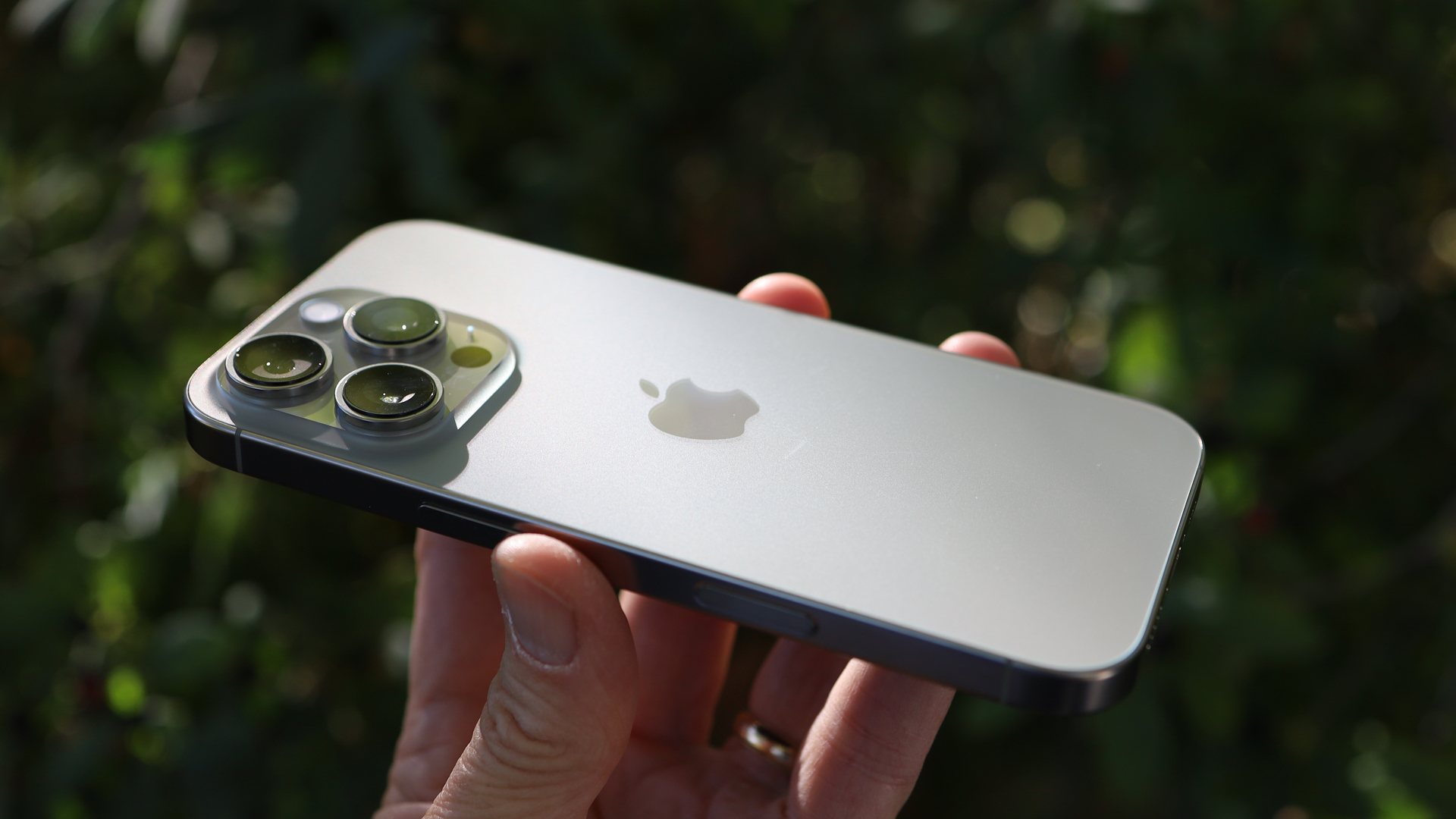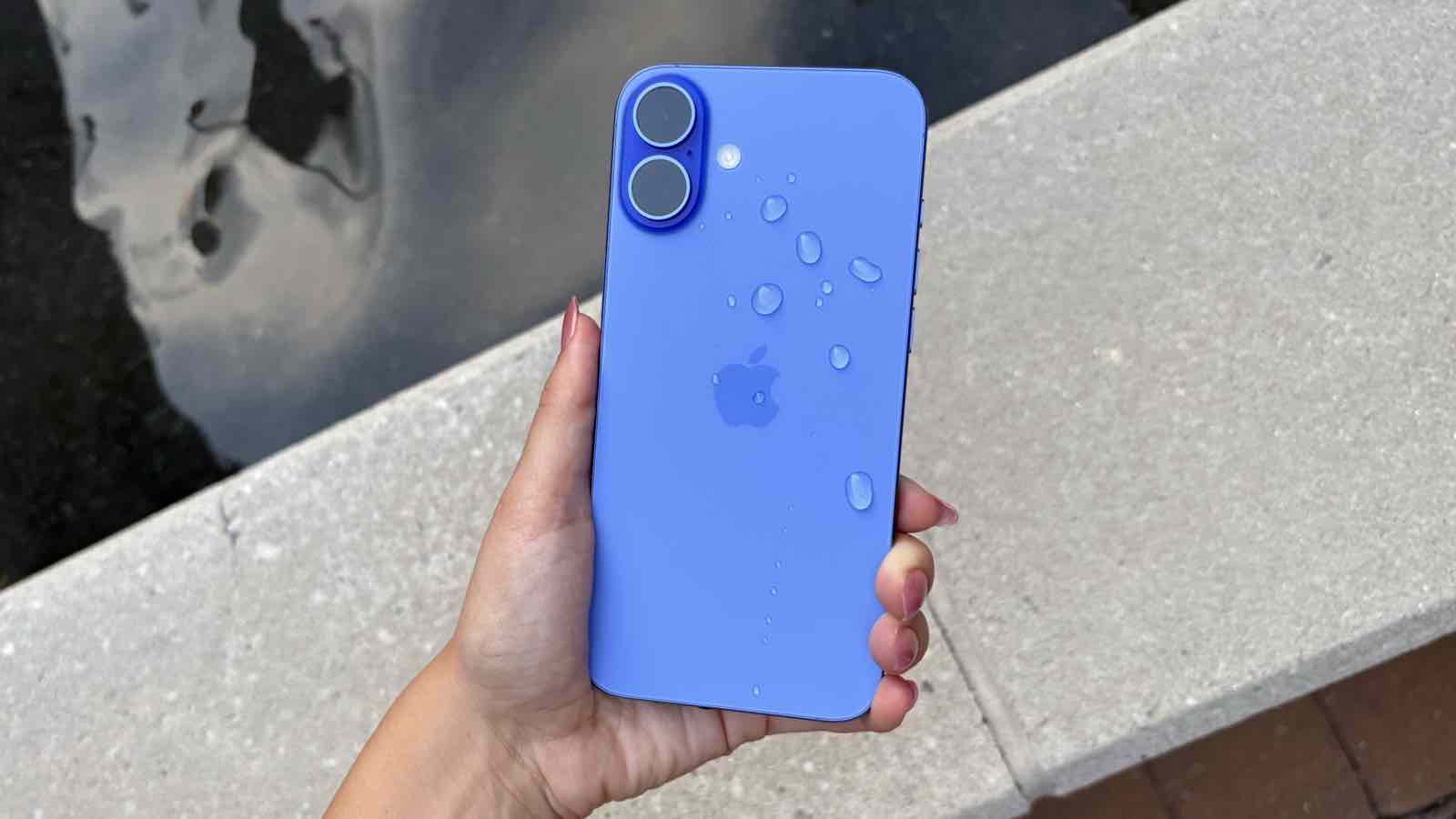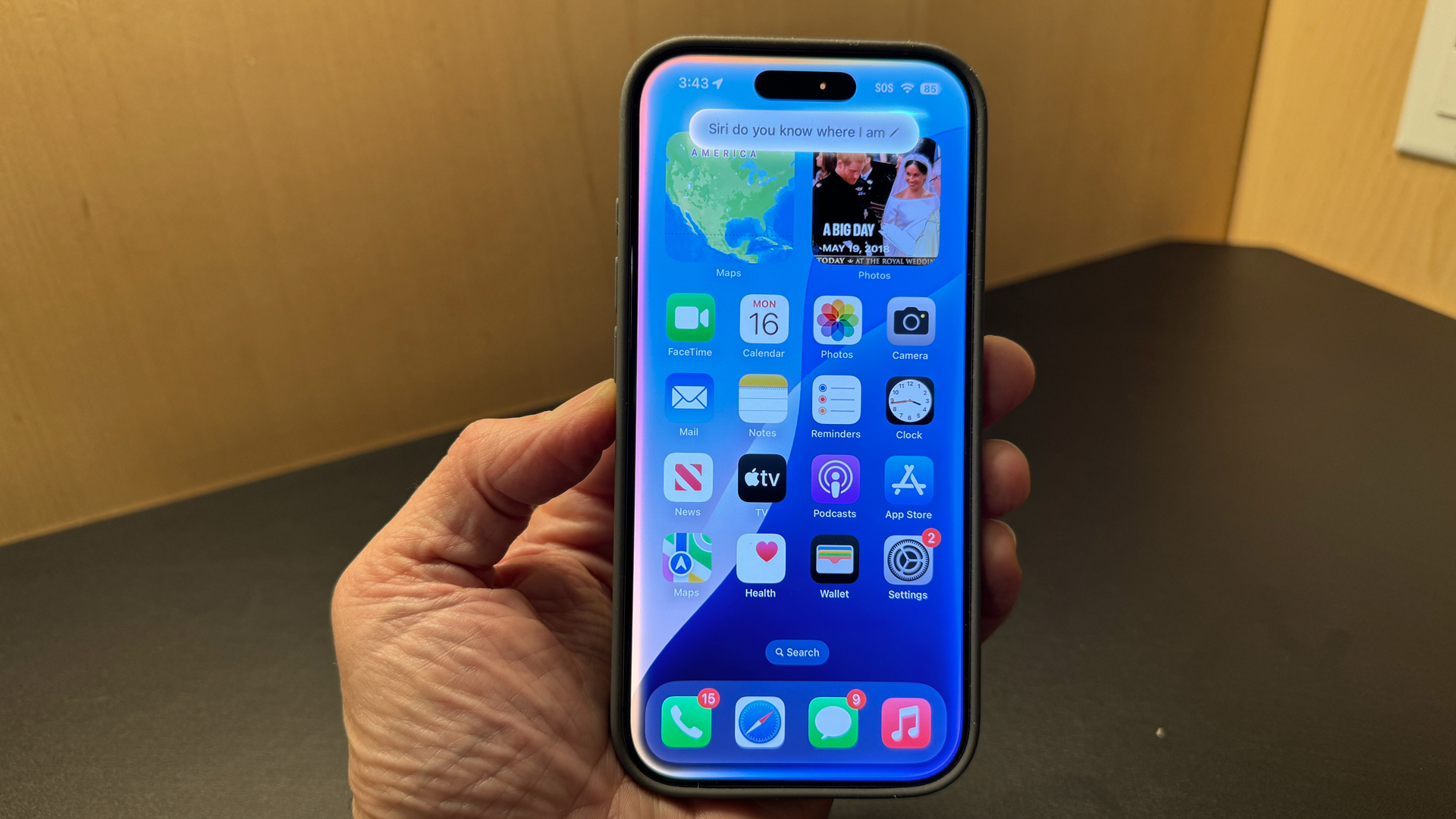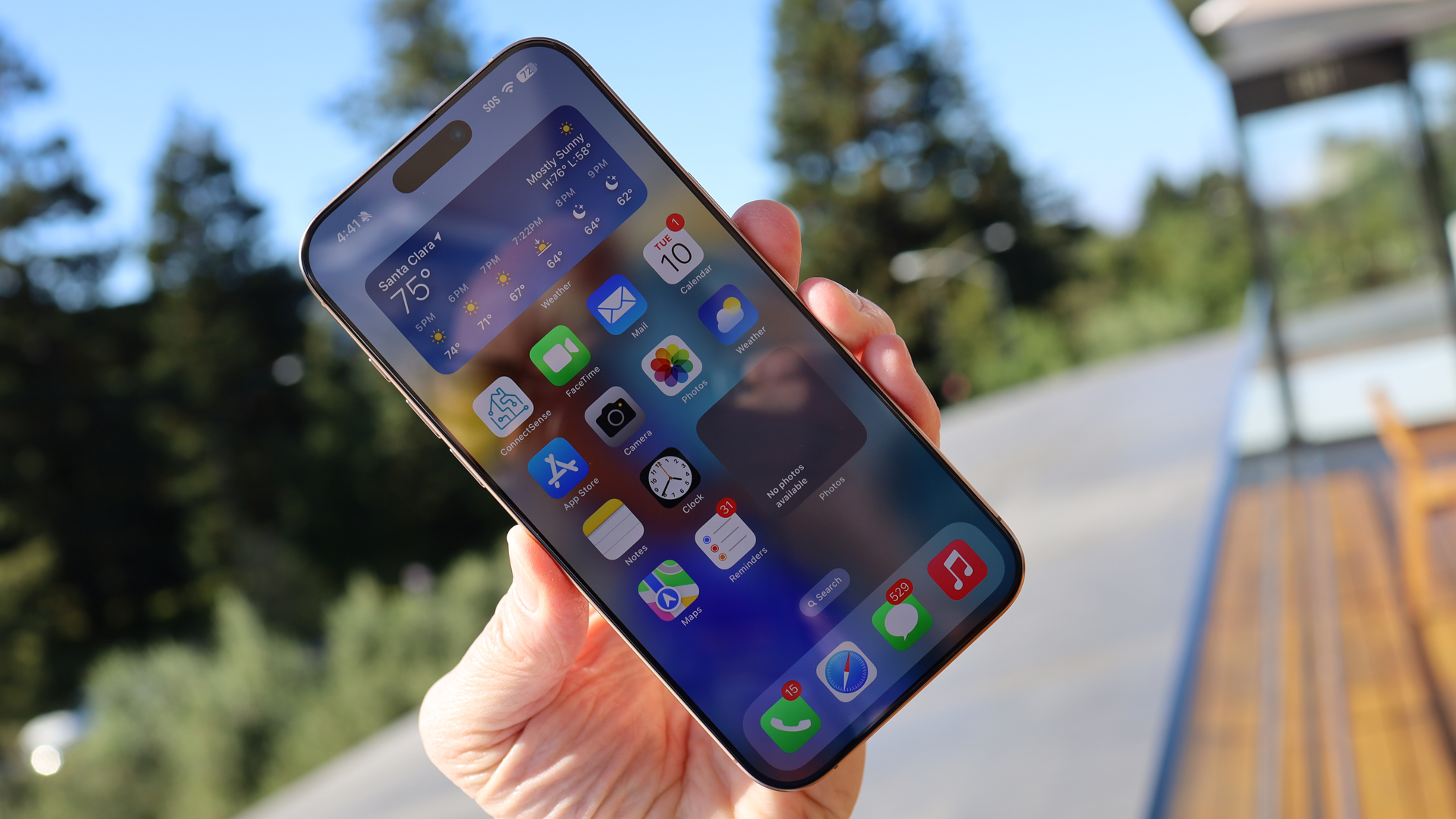iPhone 16 specs: all the key specs for every model
From the screen to the chipset and beyond

The iPhone 16 series – including the iPhone 16 itself along with the iPhone 16 Plus, the iPhone 16 Pro, and the iPhone 16 Pro Max – contains four of the most exciting and high-end phones of the year. So there are a lot of specs to talk about.
With that in mind, in this article you'll find details of the key specs for each phone, so you can see at a glance what makes each model tick, and how they compare to each other.
But for a more in-depth look at the iPhone 16 line, check out our full iPhone 16 review, our iPhone 16 Plus review, our iPhone 16 Pro review, and our iPhone 16 Pro Max review.
iPhone 16 specs

| iPhone 16 specs | |
|---|---|
| Display: | 6.1-inch OLED |
| Resolution: | 1179 x 2556 pixels |
| Refresh rate: | 60Hz |
| Chipset: | A18 |
| Rear cameras: | 48MP wide, 12MP ultra-wide |
| Front camera: | 12MP |
| RAM: | 8GB |
| Storage: | 128GB, 256GB, 512GB |
| Battery: | Up to 22 hours of video playback |
The iPhone 16 is equipped with a new A18 chipset, and the mention of 'new' there is important, because in recent years the base iPhones have inherited year-old Pro chipsets.
But no, this is brand new silicon, designed to run Apple Intelligence. So yes, you'll be able to use AI features on this phone (once those start rolling out in October).
Apple also had to equip the iPhone 16 with 8GB of RAM to allow for Apple Intelligence to be supported. That's up from 6GB in the iPhone 15, but it's paired with identical storage to last year, namely a choice of 128GB, 256GB, or 512GB.
The iPhone 16's screen hasn't really been upgraded either, as once again you get a 6.1-inch OLED display with a 60Hz refresh rate and a 1179 x 2556 resolution. It also has the same 2,000-nit peak brightness of its predecessor.
Get daily insight, inspiration and deals in your inbox
Sign up for breaking news, reviews, opinion, top tech deals, and more.
As for the battery, Apple never reveals the capacity so we'll have to wait for teardowns to learn that, but the company has said that it will last for up to 22 hours of video playback, which is up to two hours more than the iPhone 15 can manage.
Charging speeds have also had an upgrade, with reports suggesting that it can handle wired charging at up to 45W, and Apple confirming that wireless charging can reach up to 25W (up from 15W last year)
Finally, the iPhone 16’s cameras haven't undergone any major changes, with 48MP main and 12MP ultra-wide snappers like last year, and the same 12MP front-facing camera. That said, you can now take spatial photos and videos, which wasn't possible on the iPhone 15, and the ultra-wide camera has gained autofocus, which also allows it to double as a macro camera.
iPhone 16 Plus specs

| iPhone 16 Plus specs | |
|---|---|
| Display: | 6.7-inch OLED |
| Resolution: | 1290 x 2796 pixels |
| Refresh rate: | 60Hz |
| Chipset: | A18 |
| Rear cameras: | 48MP wide, 12MP ultra-wide |
| Front camera: | 12MP |
| RAM: | 8GB |
| Storage: | 128GB, 256GB, 512GB |
| Battery: | Up to 27 hours of video playback |
The iPhone 16 Plus has many of the same specs as the iPhone 16, including an A18 chipset and 8GB of RAM – two significant upgrades from the iPhone 15 Plus that also allow it to support Apple Intelligence.
The battery life is also improved, with Apple claiming the iPhone 16 Plus will last for up to 27 hours of video playback, which is one hour more than the iPhone 15 Plus can achieve. As with the base model, you also get 25W wireless and seemingly 45W wired charging, both of which are upgrades on last year.
And the cameras have also had some upgrades, though not in megapixel count, with a 48MP main, 12MP ultra-wide, and 12MP selfie camera once again being included. What you do get for the first time is autofocus on the ultra-wide lens, which also lets this lens function as a macro camera. And the iPhone 16 Plus has also gained the ability to shoot spatial photos and videos.
In terms of what hasn't changed there's the storage, which as with last year comes in at a choice of 128GB, 256GB, or 512GB, and the screen, which once again is a 6.7-inch OLED display with a 1290 x 2796 resolution, a 60Hz refresh rate, and a peak brightness of 2,000 nits.
iPhone 16 Pro specs

| iPhone 16 Pro specs | |
|---|---|
| Display: | 6.3-inch OLED |
| Resolution: | 1206 x 2622 |
| Refresh rate: | Adaptive 1-120Hz |
| Chipset: | A18 Pro |
| Rear cameras: | 48MP wide, 48MP ultra-wide, 12MP telephoto with 5x optical zoom |
| Front camera: | 12MP |
| RAM: | 8GB |
| Storage: | 128GB, 256GB, 512GB, 1TB, 2TB |
| Battery: | Up to 27 hours of video playback |
Apple has equipped the iPhone 16 Pro with quite a few upgrades, including a new A18 Pro chipset. This particular upgrade isn't surprising at all, as new Pro models always get new chipsets, but it will make this a more powerful phone than the iPhone 15 Pro, and even better equipped to handle AI tasks.
Sadly, it hasn't had a RAM upgrade to go with the new chipset, so as with last year there's 8GB here. That's also the same amount as the standard iPhone 16, so you don't get extra RAM for going Pro this year.
You do get more potential storage than the base models, but again, no more than last year, with 128GB, 256GB, 512GB, and 1TB configurations all offered.
As for the screen, the iPhone 16 Pro's display is slightly bigger than its predecessor's, at 6.3 inches, where the iPhone 15 Pro has a 6.1-inch screen.
This year's display has a 1206 x 2622 resolution, a 120Hz refresh rate, a peak brightness of 2,000 nits, and around 460 pixels per inch. All of which means that aside from the size it's similar to last year's.
For the battery, Apple claims the iPhone 16 Pro can last for up to 27 hours of video playback, which is up to four hours more than you'll get from the iPhone 15 Pro, so that's quite a hefty upgrade. It also charges faster, with 25W wireless charging and seemingly up to 45W wired.
Finally, the iPhone 16 Pro has also had some camera upgrades, with it receiving the 12MP 5x zoom camera previously found on the iPhone 15 Pro Max.
The iPhone 16 Pro also got a new 48MP ultra-wide camera, which is an upgrade on the 12MP ultra-wide in the current model. However, it has retained the 48MP main camera and 12MP front-facing camera of its predecessor.
iPhone 16 Pro Max specs

| iPhone 16 Pro Max specs | |
|---|---|
| Display: | 6.9-inch OLED |
| Resolution: | 1320 x 2868 |
| Refresh rate: | Adaptive 1-120Hz |
| Chipset: | A18 Pro |
| Rear cameras: | 48MP wide, 48MP ultra-wide, 12MP telephoto with 5x optical zoom |
| Front camera: | 12MP |
| RAM: | 8GB |
| Storage: | 256GB, 512GB, 1TB |
| Battery: | Up to 33 hours of video playback |
The iPhone 16 Pro Max is the most high-spec model in the iPhone 16 line, though in most ways it's no better than the iPhone 16 Pro, as it has the same A18 Pro chipset and 8GB of RAM as its smaller sibling.
It also has the same cameras, meaning a 48MP main snapper, a new 48MP ultra-wide, a 12MP telephoto with 5x optical zoom, and a 12MP front-facing camera.
The main way in which the iPhone 16 Pro Max differs to the iPhone 16 Pro is its screen, which at 6.9 inches is far bigger, and is also bigger than the 6.7-inch iPhone 15 Pro Max.
This is a 120Hz OLED display with a 1320 x 2868 resolution, around 460 pixels per inch, and a peak brightness of 2,000 nits.
The iPhone 16 Pro Max also has better battery life than either the iPhone 16 Pro or the iPhone 15 Pro Max. Apple claims it can last for up to 33 hours of video playback, which is up to four hours more than its predecessor. And it charges faster than the iPhone 15 Pro Max, matching the iPhone 16 Pro with 25W wireless and 45W wired charging.
Finally, its storage is the same as last year, with 256GB, 512GB, and 1TB options. That does though mean that it lacks the 128GB option you can get the iPhone 16 Pro in.
You might also like
- iPhone 16 price: how much does each model cost?
- iPhone 16 release date: when can you buy these phones?
- iPhone 16 colors: every shade for every model
James is a freelance phones, tablets and wearables writer and sub-editor at TechRadar. He has a love for everything ‘smart’, from watches to lights, and can often be found arguing with AI assistants or drowning in the latest apps. James also contributes to 3G.co.uk, 4G.co.uk and 5G.co.uk and has written for T3, Digital Camera World, Clarity Media and others, with work on the web, in print and on TV.